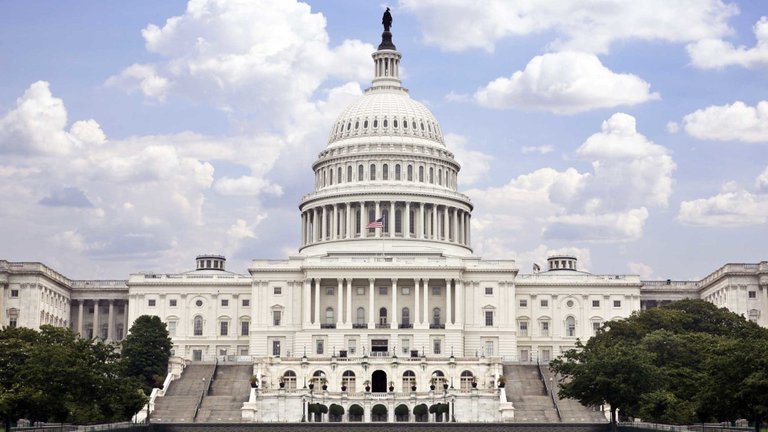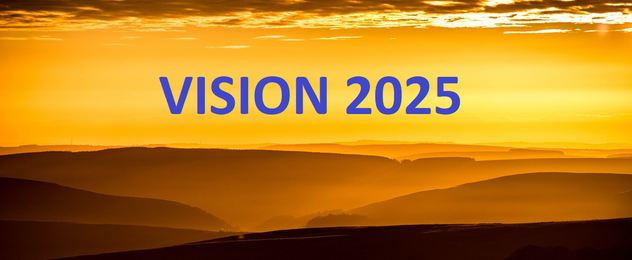Crypto: First The Banks, Then The Governments
Change is in the air.
It is amazing how quickly things can change. I recall writing a little over a year ago that the banks were done. For this, I got a great deal of pushback. People were saying that the banks were not going anywhere; they were too powerful and a part of the establishment.
In short, some thought it was a foolish outlook.
Why believe some individual on the Internet? Instead, let us look at someone who is involved with what is taking place.
“Human beings need financial services, they don’t need banks.”
This is a quote made by Brian Brooks, the acting Comptroller of Currency (OCC). What is that?
As Acting Comptroller of the Currency, Mr. Brooks is the administrator of the federal banking system and chief officer of the Office of the Comptroller of the Currency (OCC). The OCC supervises nearly 1,200 national banks, federal savings associations, and federal branches and agencies of foreign banks that conduct approximately 70% of all banking business in the United States. The mission of the OCC is to ensure that national banks and federal savings associations operate in a safe and sound manner, provide fair access to financial services, treat customers fairly, and comply with applicable laws and regulations.
Source
Essentially, this is the top overseer for the banking industry within the United States Treasury. In other words, this is not a statement from some anonymous guy on the Internet. Here is someone who is immersed in the daily workings of the banking industry.
Brooks also had some other tidbits that are very interesting.
“We see a future where decentralization is very likely an unstoppable force out there. Decentralized networks, by definition, are cheaper, faster, and more resilient than any kind of centralized structure.”
Again, we see a concept that is espoused by many who are involved in cryptocurrency. We are seeing the transformation of an industry occurring before our eyes, much in the same way as music was forever altered almost two decades ago.
“It is possible for you to just go online and say, ‘Hey, listen, I’ve got $10,000 here and I’d like it to earn five percent’ […] the algorithm will find someone who does, and all of a sudden there’s no longer a value in the bank aggregating all of that money together.”
Full article:
Ultimately, technology is replacing much of what banking does. When you have an aggregator, in this instance for financial purposes, we are now in a world where that can be handled via software. This is a lot of what blockchain coding does. The entire premise of block validation by code run all over the world is to aggregate much in the same way as banks.
Of course, there are some services that banks provide which are not available in DeFi. This is likely only a temporary situation as more development is taking place. There are people out there who are looking at every facet of the banking system and trying to come up with ways to automate it. Since it is an industry that deals with numbers, it is fairly easy to do since it is already digitized for the most part.

Source
If the banking industry is coming under fire, can we exempt government from the process? Again, many feel this establishment is too powerful to be torn down. However, a case could be made the entirety of the banking industry is more powerful than governments. Unlike the later, the former does not deal with national boundaries. They are truly global in scale.
The digitization of the world changed things a great deal. We are about to embark upon another leg with the development of virtual reality. This will take people deeper into a new world and economy.
Which means new governance systems are going to be in play.
Presently, we are seeing the struggle between government and mega technology companies. The governments of the world are beginning to realize how much power companies such as Twitter, Alibaba, Facebook, Google, and Amazon really wield.
It is interesting to think about how much of a direct impact these companies have. Leaving aside the censorship and some of the more noticeable activities of late, even a simple change in the terms of service be Facebook could have much greater impact upon an individual than a law passed in Congress (or Parliament). These platforms tend to affect us a great deal more in a direct manner.
As the idea of a "networked" life takes on greater meaning, where does government fit into this. We already see a country like Estonia leading the way in terms of its digital adoption. It even went so far as to create a "digital citizenship" where people can become online citizens which then allows them to register businesses in that country. This can be done from anywhere in the world.
Is it an idea that will spread?
Naturally, if decentralized networks keep growing, the line between our physical and online world is going to blur. Each year, where we are physically located is becoming less important in terms of finance, economics, sociability and commerce. As this occurs, decentralized platforms will operate outside the scope (and thus regulations) of any single government. Unlike the mega technology companies, the lack of physical presence removes the point of entry to regulate them.
So yes, there will be a period of time, likely the next two decades, where we see the power of physical governments diminished. This will not happen overnight but will start as a slow "bleed". Along the way, financial setbacks will handcuff many governments, causing them to collapse. The larger ones, like the U.S. and EU will keep things spinning, but will also face the same situation. Essentially, downsizing will take place.
An online game, developed by a few people located in different areas of the world, using digital assets and cryptocurrency as well as a URL that is outside the reach of the regulators (such as an ETH site) is basically operating outside any economy, government, or legal framework.
Now, the situation becomes clear if we repeat this a couple million times.
If you found this article informative, please give an upvote and rehive.

gif by @doze

Posted Using LeoFinance Beta
@taskmaster4450, In my opinion in this New Age we are seeing Digital Hole In The System. Stay blessed.
Your current Rank (26) in the battle Arena of Holybread has granted you an Upvote of 19%
View or trade
BEER.Hey @taskmaster4450, here is a little bit of
BEERfrom @pixresteemer for you. Enjoy it!Learn how to earn FREE BEER each day by staking your
BEER.Any shot in the ass is a step forward and this starts becoming a reality for the cryptocurrency markets which were held back by banks and governments which now started to adopt it. Any resilience and resistance shown in the past, helped prove the contrary and now there is no way around it. We are living the making of blockchain and cryptocurrencies time, open your eyes wide and be a part of the change and forge your destiny!
Posted Using LeoFinance Beta
We just need to keep pushing forward each day and staying consistent with the growth of all that is being developed. We all have a part to play and, with the numbers so small, each has to do a lot.
Posted Using LeoFinance Beta
As older generations grow weaker in terms of population, new technology can start taking over with less pushback from these older generations.
I think of it as the situation where that one 50+ year old manager in a company insists that we all use fax machines, because that is what he knows and he's not willing to risk his reputation and dividends on taking a chance on something new. Once that guy retires, the door is possibly opened for someone of the next generation that has already been submersed in the new advancements.
So once modern generations start replacing older ones and their thinking, the modern technologies will automatically follow. I believe that decrease in pushback and increase in understanding is also a factor within your topic of the banks.
That is very true that age comes into play when dealing with technological adoption.
Of course, so does a lack of alternatives which is why I think that crypto adoption will come from outside the developed world.
Posted Using LeoFinance Beta
True. That one is also noticeable right here on Hive.
Well I think this is why some government in some part of the world are fighting decentralisation. People would control what they own independently it weakens centralisation to the core. Hopefully it'll happen the way we want it.
It is interesting to see this coming from the one who oversees the American banking system.
We are seeing a change in mindset.
Posted Using LeoFinance Beta
The way I see it banks are not going anywhere. They'll simply rebrand. As stated in the introduction, people don't need banks, they need payments services and that's what banks are going to offer. They'll create digital currencies, take their fees, cut jobs and close offices not needing that much personnel and here we have a new era of money. Even the news regarding paypal of today makes me think that what they did is just another step towards the new digital money and not any sort of mass adoption for true crypto. Bankers will not be left out, they will use the concept of crypto for their own benefit. Hope I'm wrong.
Posted Using LeoFinance Beta
The blockchain has a major scaling issue. The more you distribute the harder it is scaled with security.
2nd layers, like sidechains and plasma can partially solve this but as more scale and performance required by demand the more place you have for banks and trusted organizations.
The rise of crypto is not inspite of regulation rather because regulation is adopting the technology.
Like all revolutions eventually the dynamic creates a new order, but it is more likrly that banks and organizations will exist in this new order as long as people perspective is wiifm.
Btw hive is quite centralized and the 20 top witnesses rule the platform. You have no control on fake accounts so money can buy control like in Steem. You cant fork for ever.
The solution imho is to distribute the block creation with more witnesses. Increase 20 to 100 or any N with dependence of witness reputation of course.
Hi @LeoFinance ,
I am from the previous generation, the one who knows punch cards and even works with an electronic teller machine, but I see a struggle with the states that try to regulate all movements and relationships on the Internet, especially to collect taxes on operations and control the communities.
My humble opinion is that they will try by all means to control communications on the network and tax their use and services, especially those that generate profits.
I bet on the youngest and the triumph of freedom.
Fantastic and Paypal also announced to provide services for crypto which is i believe the game changer for next generations as many will be following it in future.
Posted Using LeoFinance Beta
What I feel angry that banks bail out. Many cases of bail out due to corruption ...who should pay for..citizen should pay for from taxes. Banks are real suckers
Posted Using LeoFinance Beta